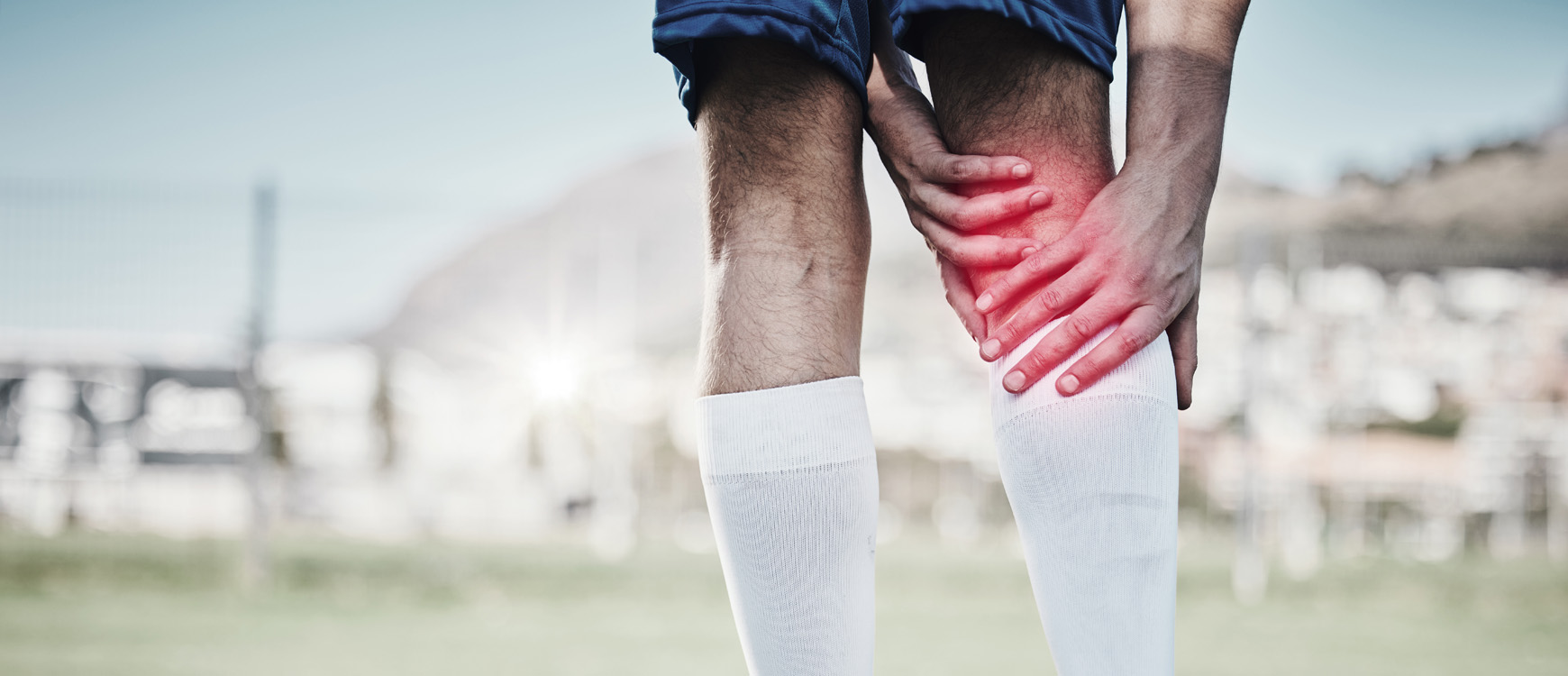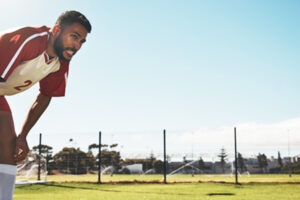
Football Periodisation: Training makes your body weaker
Why do players train? To become a better football player, right? But how does that work? In this blog, I will explain which training sessions will help your players improve, and which ones won’t.
If players have to perform a task during training which they have already performed and mastered in the past, then they will keep themselves inside their comfort zone. This will hardly push any boundaries to improve themselves. When they are facing a new (game) situation, it is a different story. They are now forced to adapt to a unique task. This is called ‘overload’. When you are forced to do something you have never done before, this will overload the body. Their brain, muscles, and other body parts are pushed to their limits and even a little further. This might result in minor damage inside some of these body parts.
Have you ever experienced ‘muscle soreness’? This soreness is the consequence of muscle(s) being ‘damaged’. As the body does not like to be damaged, it will trigger a reaction called ‘inflammation’. The immune system is activated resulting in, for example, a higher blood flow so the tools to repair the damage can be transported to the damaged muscle.
Overload training damages the body
The body will not only ‘repair’ these muscles but make them even stronger than before to avoid new damage in the future. This adaptation is called a training effect. By increasing the training load a little more next time, muscles will be ‘damaged’ again, so the process repeats itself. And the same is true for other parts of the body. Depending on the type of training, the brain, lungs, heart, blood vessels, blood cells, etc. will adapt.
Obviously, players have to be careful doing this. If they push their boundaries too far during a session, the ‘muscle damage’ might be too much, resulting in a muscle injury. This is called ‘over-overload’. That is why it is important to apply a gradual progression of overload during the season. To make a long story short, overload training will make the body temporarily weaker. This is the opposite of what many people think. They often think that a training session makes players better but that is not true. An overload session is only the stimulus to force the body to improve itself. However, this process of adaptation does not take place during the training itself. A training effect will occur after a training session. But only if players pay enough attention to their recovery.
Recovery makes your body stronger
After intense training or a demanding game, players have not become better players. In fact, it is the opposite. At the end of this activity, the body will perform worse compared to the start. An overload training session does not immediately improve players. It only ‘damages’ their body to force the body to improve itself. Only if players recover well afterwards will a training effect develop. Let’s discuss the most important parts of a good recovery process based on the 4 R’s: Repair, Restore, Remove, and Rehydrate.
Repairing damage
After an overload training session or a hard game, the muscles are ‘damaged’. To repair these muscles (and other tissues), players need proteins. Think of these proteins as the ‘building blocks’ for the muscles. That is why nutrition is so important for football players. By consuming proteins afterwards, the blood will transport these ‘building blocks’ to the muscles, so the repair process can begin. But this is not the only thing that has to happen within the muscles after an overload.
Restoring energy
When performing many explosive football actions during training or a game, players use a lot of energy. Most of that energy is ‘borrowed’ from what is stored inside the muscles. So, after a demanding game or training, players have to replenish this energy. By consuming carbohydrates during their recovery process, this energy source will be transported via the blood to the muscles. Research has shown that it can take up to 72 hours or more after a 90-minute game or overload training session before all the energy players have used has been fully restored.
Removing waste products
The blood not only transports ‘building blocks’ to the muscles, but it also transports ‘garbage’ from the muscles. Using energy does not come for free for the muscles. ‘Garbage’, including heat, CO2, and lactate will be produced as a by-product. The accumulation of these waste products is one of the reasons players get tired during training or games. Waste products have a negative effect on how their muscles work. They will make players struggle to keep performing football actions at 100%. The more this ‘waste’ is produced when playing football, the stiffer players will feel the next day. That is why these waste products have to be removed from the muscles as quickly as possible. A cool-down after the game or training could help, as it flushes blood through the muscles to aid in the removal of these waste products. In general, the blood is the most important vehicle to transport waste products from the muscles to the outside world.
Rehydrating
Another way to get rid of a waste product like ‘heat’ is sweating. When players sweat, a layer of water develops on the skin. Their body is doing this in an attempt to pull the heat from the body to this layer of sweat outside the body. The consequence is that the body loses a lot of fluid. This is called ‘dehydration’. Water is an important component of the blood. If players are dehydrated, their blood volume will decrease. There will be less blood to transport ‘building blocks’ and ‘energy’ to the muscles and to remove waste products from their muscles. Moreover, their heart has to work harder to pump the smaller amount of blood through their body quicker. So, after training and games, it is crucial that players consume water to rehydrate themselves.
What do you think is the most important component of the recovery process to allow all of this repairing, restoring, and removing to take place? Sleep!
Sleep
When players are sleeping, their brains are resting. So, very little blood will go to this part of their body. This allows the body to send more blood with ‘building blocks’ and ‘energy’ to the muscles to repair and strengthen these muscles, restore the energy within muscles, and remove waste products. The more players sleep after an intense training or game, the quicker their recovery process takes place. But are players sleeping in an environment that allows them to sleep for many hours? Or do they struggle to sleep because their mobile phone is always next to them and keeping them awake? If that is the case, players have to ask themselves a question. What is more important? Their recovery and development into the best possible player or the distraction of their phone? Asking the question should be answering the question.


